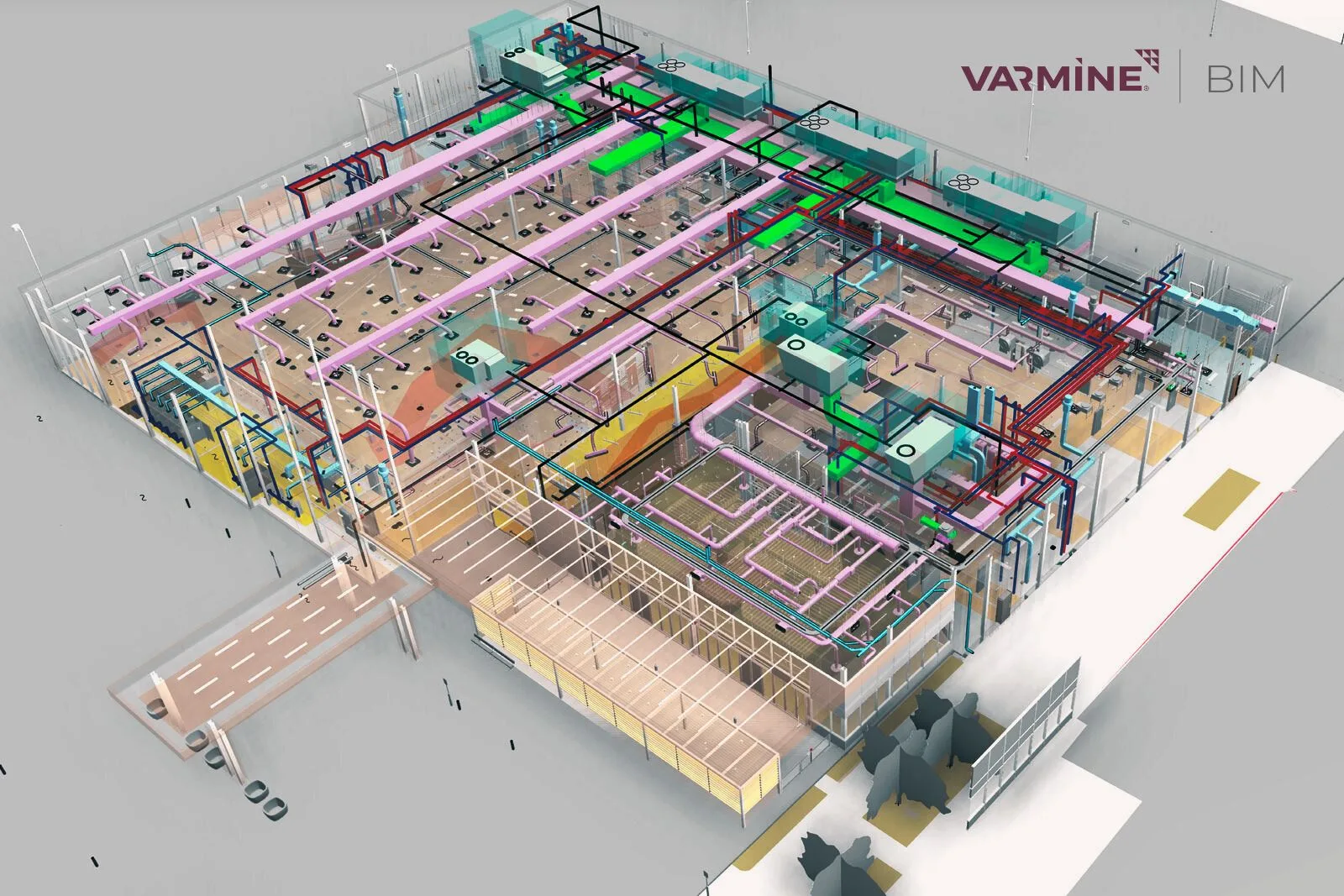
Table of Contents
The incorporation of technology has ushered in a new age in the quickly changing construction landscape, converting conventional buildings into intelligent structures. The Internet of Things (IoT) is a major force behind this paradigm change, since it will be crucial in determining how buildings will develop in the future with the use of Smart Buildings. We explore the relationship between IoT and construction in this blog post, with a particular emphasis on how it affects MEPF (Mechanical, Electrical, Plumbing, and fire protection) systems. Let’s examine how the advancement in IoT is enhancing building intelligence.
Understanding Smart Buildings
Smart Buildings go beyond the conventional structures we are accustomed to; they are equipped with interconnected devices and systems that collect and exchange data. This data, in turn, is analyzed to optimize various aspects of the building’s performance, from energy efficiency to security and comfort. The integration of IoT in Smart Buildings has become a game-changer in the construction industry.
IoT Revolutionizing MEPF Systems
Intelligent HVAC Systems
Heating, Ventilation, and Air Conditioning (HVAC) systems are critical components of any building. With IoT, these systems become intelligent, adapting in real-time to environmental conditions and occupancy patterns. Smart sensors gather data on temperature, humidity, and occupancy, allowing HVAC systems to optimize energy consumption and provide personalized comfort.
Connected Lighting Solutions
IoT-driven lighting solutions have revolutionized the way we illuminate our buildings. Smart sensors and connected fixtures enable dynamic lighting control, adjusting brightness based on natural light, occupancy, and user preferences. This not only enhances energy efficiency but also contributes to a more comfortable and productive environment.
Enhanced Building Security
IoT-driven Surveillance Systems
The integration of IoT in building security extends beyond typical surveillance methods. Smart cameras with advanced analytics detect anomalies, monitor movements, and improve overall security. This intelligence enables proactive security measures, reducing risks and swiftly addressing threats. Smart Buildings utilize IoT for advanced access control, incorporating biometric authentication and mobile-based access for enhanced security and convenience. Remote monitoring and control further enhance security for building owners and facility managers.
Energy Efficiency and Sustainability
Real-time Energy Monitoring
IoT enables real-time monitoring of energy consumption within a building. Smart meters and sensors collect data on electricity, water, and gas usage, allowing for precise analysis and optimization of energy efficiency. This not only reduces operational costs but also aligns with the growing emphasis on sustainable construction practices.
Predictive Maintenance for MEPF Systems
IoT-driven predictive maintenance is a game-changer for MEPF systems. By continuously monitoring equipment health, Smart Buildings can predict potential failures before they occur, allowing for proactive maintenance. This not only minimizes downtime but also extends the lifespan of critical systems.
Challenges and Future Trends
Data Security and Privacy Concerns
While IoT brings unprecedented benefits, it also raises concerns about data security and privacy. Building owners and construction professionals must address these challenges by implementing robust cybersecurity measures and ensuring compliance with privacy regulations.
Integration with Emerging Technologies
The future of Smart Buildings lies in the seamless integration of IoT with emerging technologies such as Artificial Intelligence (AI) and Augmented Reality (AR). These advancements will further enhance the capabilities of Smart Buildings, offering new possibilities for efficiency, automation, and user experience.
Conclusion
As Smart Buildings become the new norm in construction, the role of IoT in shaping the landscape of MEPF systems cannot be overstated. The synergy between intelligent devices, real-time data analytics, and sustainable practices is propelling the construction industry into a future where buildings are not just smart but inherently smarter. Embracing this technological revolution is not just a choice but a necessity for those seeking to stay ahead in the dynamic world of construction.
Also Read: Expert BIM Coordination Services in Boston
